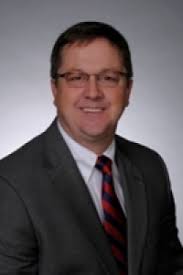Taxes to top legislative session


LITTLE ROCK – State government will get off to a fast start in 2019, when the legislature convenes in regular session on January 14 and takes up proposals to lower income taxes and simplify the tax tables.
Legislators and tax officials are calling the proposal the “two – four – five point nine” plan. That’s because it would phase in rates for all taxpayers of 2 percent, 4 percent and 5.9 percent.
One of the main questions is how quickly to implement the full amount of tax reductions. There are some who want to phase it in over four years, others prefer to do it in three years and some believe it can be fully implemented in two years.
Others want to proceed more cautiously with tax cuts, to make sure the reduction in state revenue does not force cutbacks in essential services.
There also are supporters of reducing the number of tax tables to one, instead of three.
Under the state Constitution the session must last for 60 days. Legislators may extend it, and in the past couple of decades they have generally lasted 80 to 90 days.
Also this year there will be heightened interest in the amount of teacher pay raises. The legislature appropriates funding for public schools, and to determine how much to spend on public education legislators conduct an adequacy assessment. It is a thorough review of the financial needs of public schools.
In this year’s adequacy report the Senate and House Committees on Education voted to recommend teacher pay raises of $1,000 a year, including raises for teachers with a master’s degree.
The adequacy report recommends another $1,000 raise for teachers in the second year of the biennium, which is Fiscal 2021.
The committee recommendations are similar to proposals by the governor to raise the minimum teacher salaries by $1,000 a year for the next four years. The plan would bring the minimum teacher salary from $31,800 to $36,000 a year.
Legislators on the Education Committees also recommended an increase in the school funding formula to allow for a general 2 percent increase in teacher salaries, in order to provide raises for teachers who earn more than the minimum.
Adding up all the categories, per pupil funding in FY 2020 should be $6,883, the Education Committees recommended. In FY 2021 it should go up to $6,985.
For the current biennium, the per pupil foundation funding rates are $6,713 in FY 2018 and $6,781 in FY 2019.
The governor has proposed reducing the number of state agencies from 42 to 15. By 2021 the savings would begin at about $15 million a year, and likely would grow over time.
Budget issues will dictate law enforcement policy, specifically regulations within state prisons and regulations governing parolees. For example, the governor has proposed adding 30 parole officers to the state Department of Community Corrections in order to lower their average caseload.
The department now employs 489 parole officers with an average caseload of 98. Adding 30 officers would lower their average to 90, according to the director of the department. Last year the department supervised more than 57,000 offenders on probation or parole.

